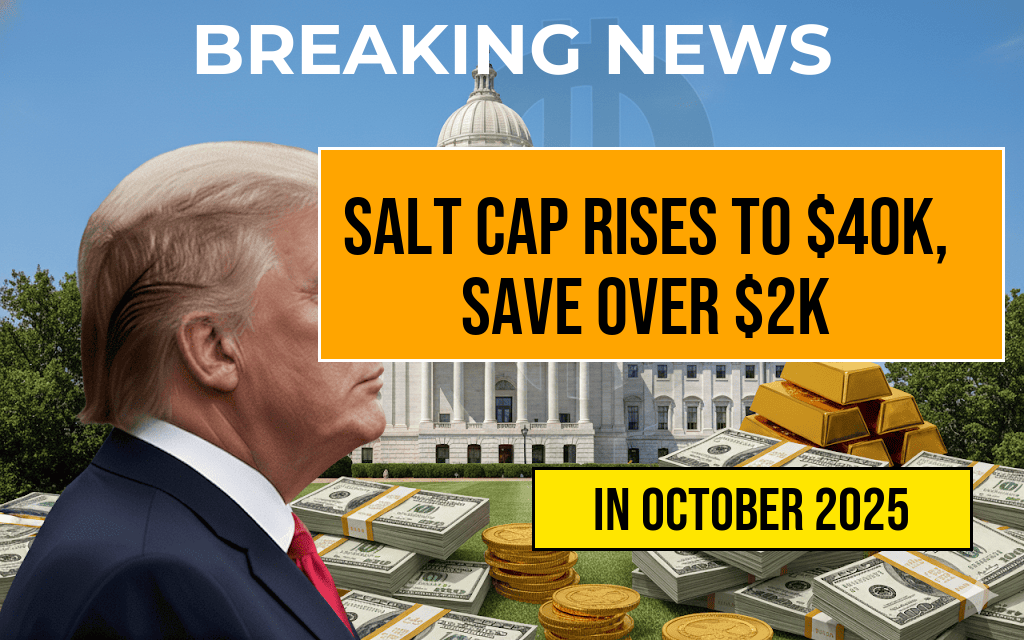Tax ‘No Tips’ Rule Extended Through 2028 with a $25,000 Annual Cap You Can’t Overlook
The IRS has officially extended the controversial “no tips” tax rule through 2028, establishing a clear cap of $25,000 in annual tips that employees can report without facing additional scrutiny. This policy, first introduced as a temporary measure, aims to simplify tax compliance for service workers while preventing potential abuse of tip reporting. The extension comes amid ongoing debates over how best to balance fair taxation with the realities of tipping culture, especially in industries like hospitality and food service. Workers and employers alike should review the updated guidelines to ensure compliance, as exceeding the cap could trigger audits or penalties. The extension underscores the IRS’s efforts to streamline tax processes and adapt to evolving economic conditions, with the stipulation that the cap be monitored and enforced through 2028.
Background of the ‘No Tips’ Rule and Its Significance
The IRS introduced the “no tips” rule as part of broader efforts to clarify reporting obligations for service industry employees. Under this regulation, workers are encouraged to report tips accurately, but certain thresholds were set to reduce administrative burdens. Previously, the policy was temporary, with periodic extensions granted to evaluate its impact on compliance and revenue collection.
The core objective has been to prevent underreporting of tips, which constitute a significant portion of income for many workers. At the same time, the rule aims to minimize unnecessary paperwork for employees earning tips below the cap, thus encouraging adherence to tax laws. Critics, however, argued that the policy could lead to underreporting or unfair penalties for workers who unintentionally exceeded the threshold. The recent extension provides clarity and stability, allowing workers to plan their finances with confidence through 2028.
Details of the 2028 Extension and the $25,000 Cap
| Aspect | Details |
|---|---|
| Extension Duration | Through December 31, 2028 |
| Annual Tip Reporting Cap | $25,000 |
| Reporting Requirements | Tips received below cap generally not scrutinized; above cap may trigger audits |
| Impact on Workers | Provides clarity, reduces burden for reporting tips under cap |
The cap effectively shields employees from excessive IRS oversight as long as their reported tips stay within the $25,000 threshold. Employers are also advised to maintain accurate records and report tips diligently to avoid penalties. The IRS emphasizes that any tips exceeding this annual limit should be properly documented and disclosed, aligning with existing tax obligations.
Implications for Service Industry Workers and Employers
For workers in sectors heavily reliant on tips, this extension offers a measure of certainty. Employees earning less than $25,000 annually in tips can report income with less concern about audits or penalties. However, those whose tips approach or surpass this cap need to stay vigilant, as discrepancies could lead to IRS investigations.
Employers, in turn, should reinforce proper payroll and tip-reporting procedures. Accurate recordkeeping helps mitigate compliance risks and supports transparent tax filings. Many industry groups have welcomed the extension, viewing it as a step toward reducing administrative burdens and fostering fair tax practices.
Broader Context and Future Outlook
The extension aligns with ongoing efforts by federal authorities to modernize tax regulations in response to changing economic patterns, especially in the gig and service economy. It also reflects a cautious approach, balancing enforcement with practicality. While the policy is set to remain in effect through 2028, stakeholders anticipate further discussions on whether to adjust the cap or introduce new reporting standards.
Tax professionals advise workers and employers to stay informed through official IRS updates and consult with tax advisors to ensure compliance. As the policy evolves, so too might the enforcement landscape, making proactive recordkeeping and transparent reporting essential.
For additional information on IRS reporting guidelines and tax policies, visit the IRS Small Business and Self-Employed Tax Center or review detailed explanations on Wikipedia’s Taxation in the United States.
Frequently Asked Questions
Question
What is the main change to the tax ‘No Tips’ rule extended through 2028?
Question
What is the annual cap on tips that cannot be exceeded under the new rule?
Question
How does the extension of the No Tips rule impact restaurant employees and employers?
Question
Are there any exceptions or special considerations to the tip reporting requirements under this rule?
Question
When did the extension of the Tax ‘No Tips’ rule become effective, and what is the duration?










